CCJC Audio Podcast Episode 57, Season 2
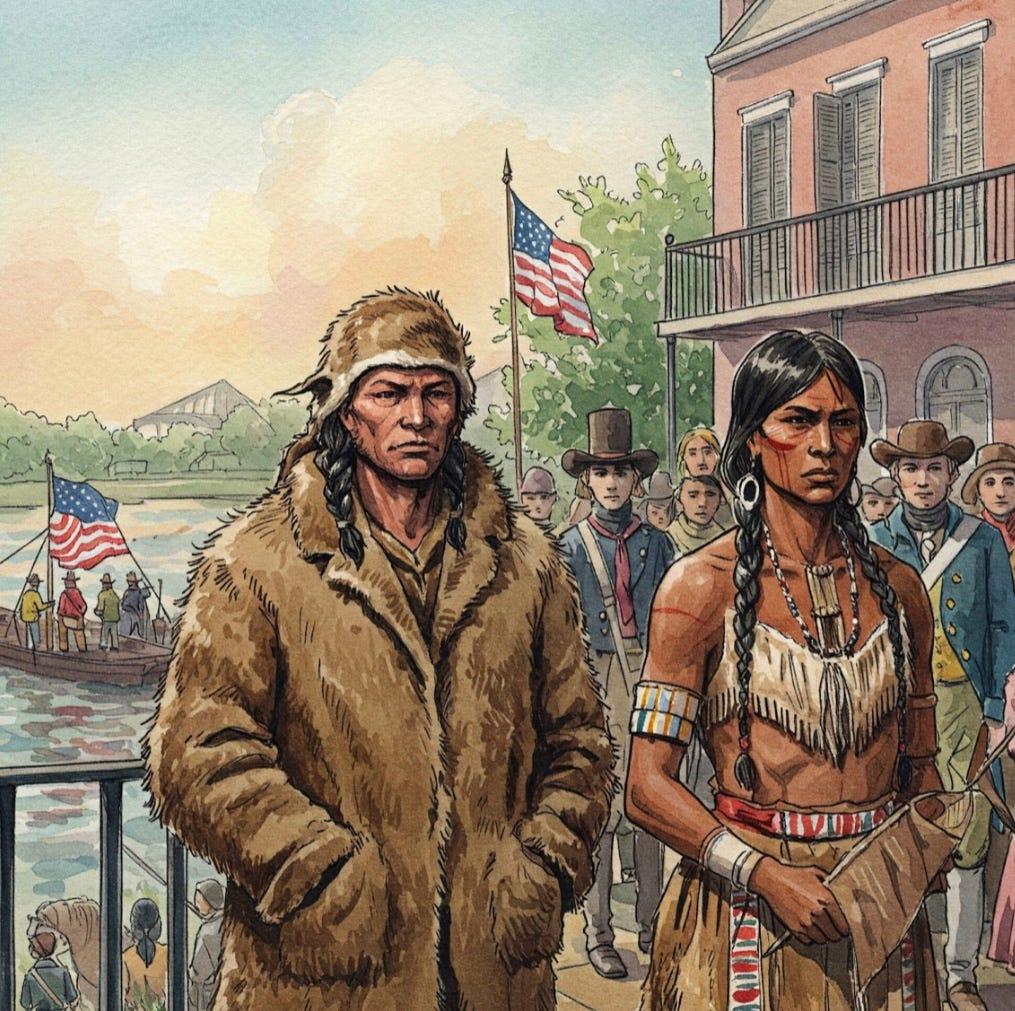
Since today’s Cajun Podcast Corporation’s very own J. W. Gigi’s (One of our Advisory Board members) birthday it’s time we talked about another March 10 special moment in Louisiana history. She might be a senior citizen, but she doesn’t dwell in the past no matter how much she writes about it.
Sharing cultural history about a place is also about being in the moment and looking towards the future. You have to know where you came from, how you got here, and who you came from to know where you are going.
Quill Pens to Smartphones: Louisiana's 1804 Transfer & Modern Parallels
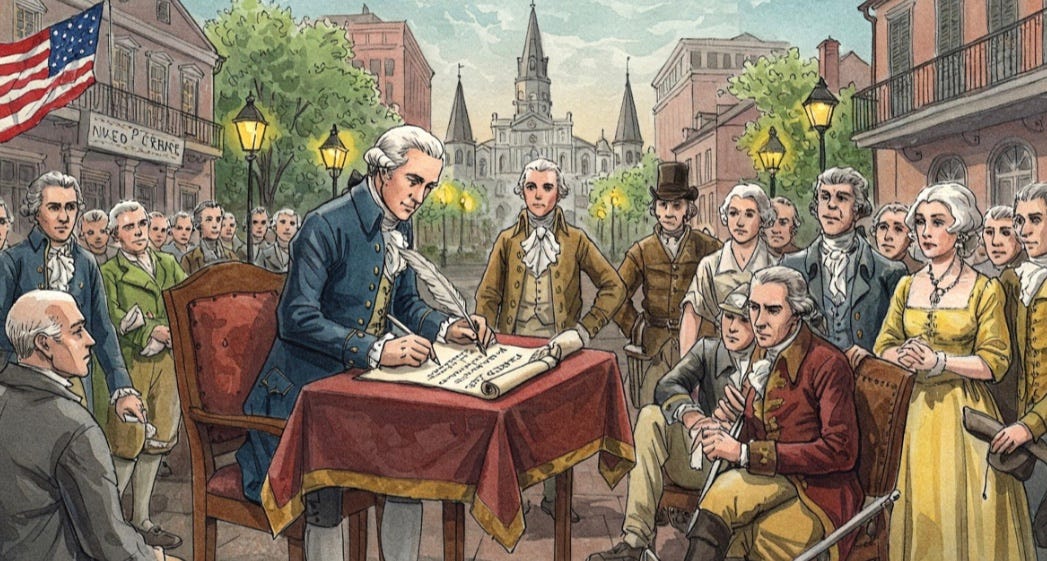
The month of March can always come with a chilly cloak that clings to us and our state’s visitors. two-hundred and twenty years ago on March 10, 1804, a motley crowd of men gathered for the grand transfer. Jean-Pierre, a weathered Creole fur trapper with a magnificent, if slightly moth-eaten beaver pelt that shivered and bemoaned, “They gave us to the Americans,” he muttered.
Those words were thick with generational accents. “It’s like we are a sack of crawfish, eh? Here, you take it. We don’t know what to do with it.”
His long time companion, a stoic Choctaw woman named Atepa Adelaide, merely raised an eyebrow. “They draw lines on paper, Jean Pierre. Lines that mean nothing to the Mississippi River, nothing to the Bald Cypress. Nothing to the spirits like us.”
Indeed, the Americans, with their starched collars and furrowed brows, were busy with their paperwork, their quill pens with iron gall ink scratching across goatskin parchment like frantic Eastern Grey squirrels in search of new tree shoots budding out. They talk of “manifest destiny” and “progress.”
Those words sounded as foreign to Jean-Pierre as the clanging of the keel boat that was, even now, poling its way up river. “Progress,” Jean-Pierre scoffed, pulling out a flask of questionable Boisson Forte whiskey from his coat. “They’ll be putting roads where the cocodrils sleep and try to tax my pirogue. Mark my words.”
The ceremony itself was a blur of speeches, flags, and solemn pronouncements. The French flag was lowered, the American flag raised. The vast, muddy expanse of Upper Louisiana was officially on paper anyway, turned over.
“So,” Jean Pierre said, as the self-important men and the crowd began to disperse, “Now we are Americans. What does that mean Atepa Adelaide?”
Atepa Adelaide, shrugged, “It means they will argue about the lines on the paper for centuries and they will put casinos where our Spanish Longhorn cattle used to dwell.”
Jean-Pierre nodded, a slow moving all knowing smile spreading across his face. “And we,” he said, tapping his flask again, “Will still make gumbo that burns their tongues and tell stories that make them question their sanity.”
“You know,” Jean-Pierre said, swirling the last sips of his eau-de-vie whiskey, “Watching those Americans all these years with their fancy papers, it’s kinda like watching the folks on TV arguing about . . . Well most everything. Some of their leaders sharpie lines on maps, make big speeches, but does it really change anything for us down here? We’re still gonna have hurricanes, right? And cocdrils ain’t gonna start paying taxes just because some guy signed an executive order.”
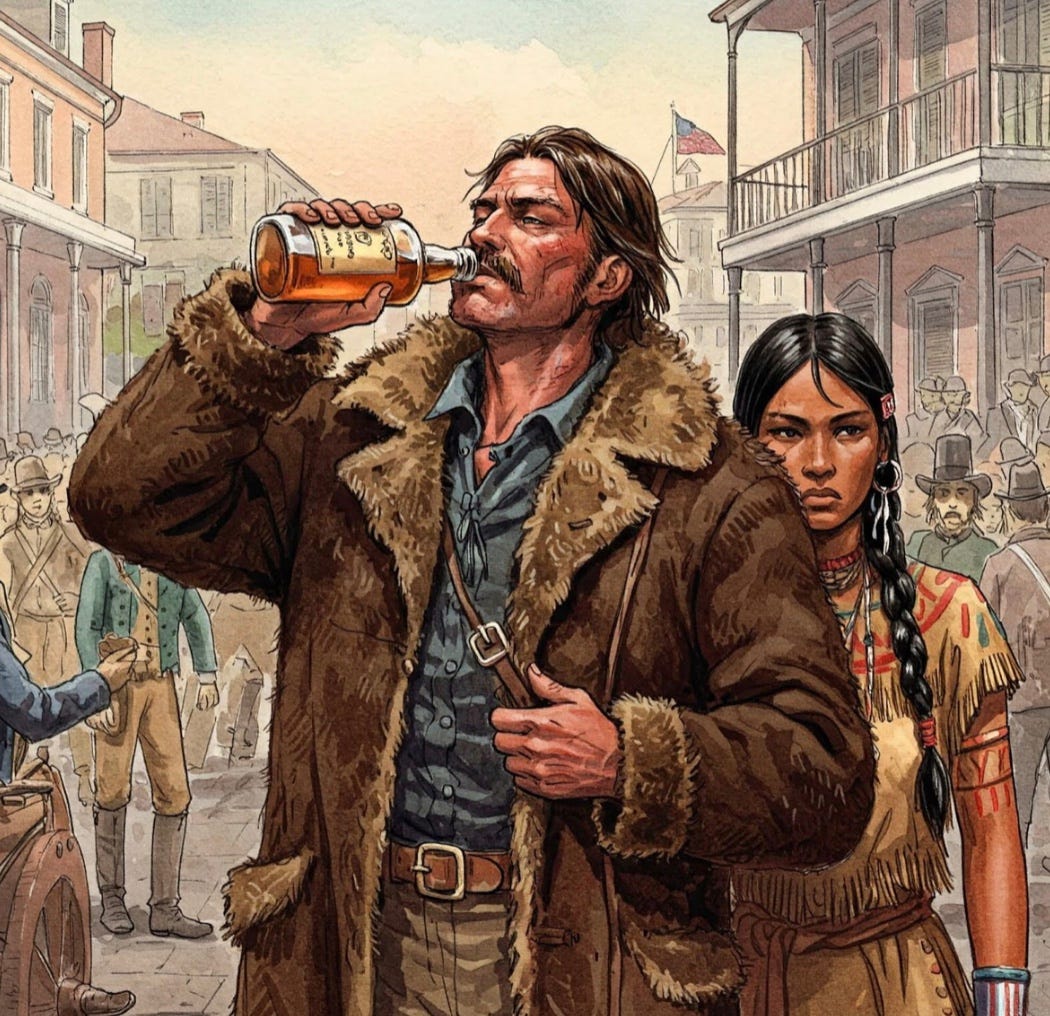
Atepa Adelaide, nodded, her gaze fixed on the shore. “It’s like how they talk about “progress” all the time. They build these giant off-shore platforms and on native land casinos. They build oil refineries, but the Mississippi River keeps flooding, and the land keeps sinking. They are so busy trying to change everything to their advantage, they forfeit to just live with it. Just like how everyone’s always on their glowing boxes now, missing the sunset.”
“And the culture,” Jean-Pierre chuckled. “Remember how they looked at us back in the day, like we were some kind of exotic animals? Now, it’s the same thing with all these different groups, everyone yelling at each other.”
“They are trying to make everyone else be just like them, instead of just enjoying the wonderful gumbo. Even online, everyone is trying to cancel or boycott everyone else. Nobody wants to listen to a good story anymore.”
Atepa Adelaide, smiled, “But we’re still here, Jean-Pierre. We still have our music, our food, our stories. They can change the flags, redraw the lines, but they can’t take that which is Louisiana away. Just like now, even with all the crazy stuff happening today, people can and will always find ways to laugh, to love, to make something beautiful. That’s the spirit, it’s like the ol’ Mississippi, it just keeps flowing.”
Our tales are inspired by real Louisiana and New Orleans history, but some details may have been spiced up for a good story. While we've respected the truth, a bit of creative license could have been used. Please note that all characters may be based on real people, but their identities in some cases have been Avatar masked for privacy. Others are fictional characters with connections to Louisiana.
A Word of Wisdom:
As you read, remember history and real life is a complex mix of joy, sorrow, triumph, and tragedy. While we may have (or not) added a bit of fiction, the core message remains: the human spirit's power to endure, adapt, and overcome.
© Jerilee Wei 2025 All Rights Reserved.

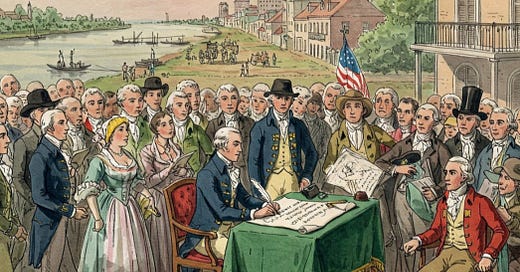








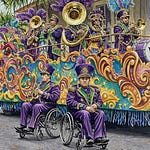



Share this post